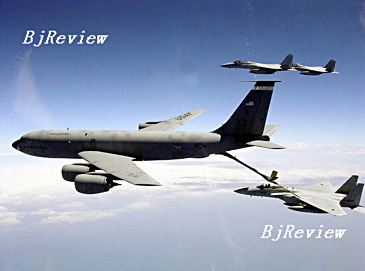
While U.S. and Japanese top diplomats and defense officials celebrated closer cooperation forged by their annual meeting in Washington in early May, one slight modification in their joint statement caught the attention of Chinese scholars.
Unlike the one in 2005, which listed Taiwan as one of their "common strategic objectives," this year's joint statement refrained from mentioning this sensitive issue.
"The change is a positive signal to China and a blow to 'Taiwan independence' forces," commented Zhou Yongsheng, a professor and expert of Japan studies at the China Foreign Affairs University.
Zhou believes that the United States took the initiative in bringing about the change. He argued that Washington does not want to see "Taiwan independence" forces alter the status quo across the Taiwan Strait, a move that will destabilize the region and adversely affect the strategic interests of the United States. It also shows Japan has taken the larger interests of China-Japan relations into consideration, he added.
In light of currently stable relations between China, Japan and the United States, Chinese experts have hailed the move positively but are still cautious about future developments.
This year's Japan-U.S. Security Consultative Committee session, or the so-called "two-plus-two" meeting, brought together U.S. Secretary of State Condoleezza Rice, her Japanese counterpart Taro Aso, U.S. Defense Secretary Robert Gates and Japanese Defense Minister Fumio Kyuma. The talks came to fruition with a pledge to enhance bilateral security and defense cooperation.
In their joint statement issued on May 1, the two allies agreed to expand and deepen intelligence cooperation and information sharing "in order to respond more effectively to emerging security challenges."
The U.S.-Japan alliance has been in transition over the years. Jin Canrong, Deputy Dean of the School of International Studies, Renmin University of China, told Beijing Review that the alliance was initially formed during the Cold War and wavered for a short period following the end of the Cold War. In 1996, the two countries redefined their security alliance and continued to strengthen it after the September 11 terrorist attacks on the United States in 2001. By 2005, the two countries had devised 12 common strategic objectives, including the Taiwan issue, as the major functions of the alliance.
The inclusion of Taiwan met with strong opposition from China. China's Foreign Ministry expressed "grave concern" over the 2005 joint statement, saying the U.S.-Japan alliance should not function beyond the bilateral framework.
However, Jin believes that the two countries' concerns over the Taiwan issue are determined by the "inherent logic" of their alliance, as both have vested interests in this issue.
Jin pointed out that China's adoption of the Anti-Secession Law in 2005 prompted the United States and Japan to give the Taiwan issue a prominent place in their joint statement. This year, however, as relations between the three countries are stable and as the situation in Taiwan seems unclear, they want to convey a message to Taiwan, he noted.
"Their basic logic has not changed," Jin stressed. "However, they have adjusted the way they frame it with the changing circumstances."
In this year's joint statement, the United States and Japan still cannot ignore China. It remains one of the strategic objectives that "advance the interests of both countries" to recognize the "importance of China's contributions to regional and global security" and further encourage China "to conduct itself as a responsible international stakeholder, improve transparency in its military affairs, and maintain consistency between its stated policies and actions."
Addressing this issue at a regular press conference on May 8, Chinese Foreign Ministry Spokeswoman Jiang Yu said that the U.S.-Japan cooperation should contribute to peace, stability and development in the Asia-Pacific region. No country is allowed to interfere in the Taiwan issue under any pretext, she added.
Jin said the latest move of the United States and Japan to exclude Taiwan from their common strategic objectives was good news for Beijing, as they now have a correct understanding of the situation across the Taiwan Strait. At the same time, he noted that it should bear in mind that the two allies will not give up their intervention in the long run.
He further warned that the proposed sales of sophisticated U.S. F-22 fighters to Japan may tip the military balance in East Asia, something that calls for serious concern. | 